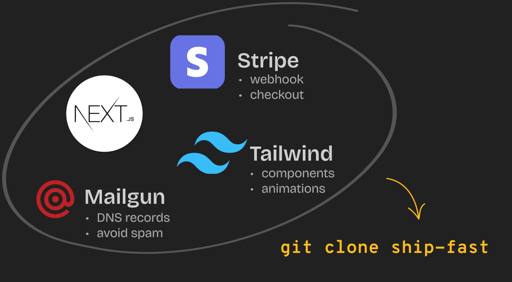Do you remember Windows 95? How about Windows 96?
-
I was actually part of the beta test group for Windows Nashville. It was an improvement over Windows 95, but Windows 98 really brought home a lot of good UI design improvements that began in Windows Nashville. Sadly, it was so buggy that they delayed for several years and, instead, just released Windows 98 when it was finally ready.
Windows Longhorn was a similar failure a few years later
Oh, the name Longhorn unlocked some memories just now...
-
I do kinda wish we had gotten WinFS. All the "ideas" of it seemed cool, just impossible to implement without breaking every existing application.
FS?
As in "F'ing Shit"?
-
That’s not a typo. Windows 96 promised to build on the success of Windows 95, yet it never materialized as originally intended.
I only learned about this a few months ago. To me, this was an incredibly fascinating discovery and wanted to write about & share it.
So much nostalgia for the Windows 95/98 era.
Playing Descent with musicmatch jukebox running in the background. (Probably a 98 memory).
Bouncing sheep...
-
Wow, that's a cool story! Thanks for sharing it! I had no clue there was even a beta test group back then. Was that outside of Microsoft?
No, I actually worked for Microsoft. I was 15. It was a sort of contract gig for bug hunters, especially if you were able to fix the code at all. Otherwise, you just had access to download it from Microsoft servers and submit feedback.
Back then, these betas were tested by the Microsoft user interface group, maybe that’s where I did contractor work for Longhorn. It was a very long time ago.
-
FS?
As in "F'ing Shit"?
If I recall, it was a new file system. So instead if folders, every file would just kind of have tags and could be dynamically grouped like that. I could very well be wrong, but I remember being excited for it.
-
Longhorn... the hype was strong with that one. I don't even remember what the hype was about, just that Longhorn was supposed to be amazing.
WinFS was yuuge part of that hype. Windows Future Storage was supposed to be a relational database based storage that would operate on metadata first.
I remember some demos and beta versions, but it was scrapped before Vista was released.
-
I was trained on making repairs to Windows 95, there was never a 96. There was a Windows ME which was fucking horrible! My step mom had it on a laptop. Then Windows 2000, which was the best, once you install the other disc that fixed the 250,000 bugs that Windows 2000 came with the original disc.
Man those were the days that I could distribute those operating systems on as many computers I wanted with the one disc.not trained on reading tho?
-
FS?
As in "F'ing Shit"?
Future Storage aka WinFS. It was a cool idea, metadata based relational db file system. But the execution was horrible, SQL Server based file system which was exposed via .NET IIRC.
Desktop search was supposed to be revolutionized, but it was scrapped just before Vista was released
-
Based on your descriptions of the integration between Windows 96 and Office, I did get the feeling you might run into even more issues if more software wasn't installed alongside Windows as well.
I'm all Mac and Virtual Box doesn't run on M-series hardware.
I had no idea!
And hopefully my comment didn't come across as a dig against your article - it just promises to be a potentially fascinating follow-up. Especially when, even today, Windows Explorer feels like it added previews of files as little more than an afterthought (and occasionally as a PowerToy).
BTW I enjoyed 100% of your article, I think it's a good sign when it leaves the reader wanting more!
Thank you! It didn't come off as a dig at all. Trust me, I thought about it and spent about an hour on Internet Archive looking for a version that ran on its site. But nothing was there and I learned the hard way last year that Virtual Box is still in the Intel era, so it's useless for me.
I did look into UTM as others are saying, but based on its description it may not be able to run an OS that far back. Something to look into down the line.
Either way, again, thanks for reading my work. I really do appreciate it. There's some other old Microsoft goodies I've written in the past, like this commercial introducing Excel.
-
If I recall, it was a new file system. So instead if folders, every file would just kind of have tags and could be dynamically grouped like that. I could very well be wrong, but I remember being excited for it.
Can we please have a FUSE FS like this?
-
Can we please have a FUSE FS like this?
I was curious, so I found this: https://stackoverflow.com/questions/3263036/file-system-that-uses-tags-rather-than-folders
One of the projects they mention is tagfs, which sounds like it does what you want: http://github.com/marook/tagfs
-
That’s not a typo. Windows 96 promised to build on the success of Windows 95, yet it never materialized as originally intended.
I only learned about this a few months ago. To me, this was an incredibly fascinating discovery and wanted to write about & share it.
no windows has come close to winmate (yeah i know it was just a skin for windows 3.1 but still)
-
That’s not a typo. Windows 96 promised to build on the success of Windows 95, yet it never materialized as originally intended.
I only learned about this a few months ago. To me, this was an incredibly fascinating discovery and wanted to write about & share it.
Back in 1997 I worked overnight at a bank running their backup software. Lots of sitting around being bored. I took it upon myself to change the Windows 95 startup logo to say Windows 96 on a number of computers. Someone out there remembers Windows 96.
-
That’s not a typo. Windows 96 promised to build on the success of Windows 95, yet it never materialized as originally intended.
I only learned about this a few months ago. To me, this was an incredibly fascinating discovery and wanted to write about & share it.
I love windows 96
-
That’s not a typo. Windows 96 promised to build on the success of Windows 95, yet it never materialized as originally intended.
I only learned about this a few months ago. To me, this was an incredibly fascinating discovery and wanted to write about & share it.
I miss hover
-
I was curious, so I found this: https://stackoverflow.com/questions/3263036/file-system-that-uses-tags-rather-than-folders
One of the projects they mention is tagfs, which sounds like it does what you want: http://github.com/marook/tagfs
Ha, thanks for searching!




